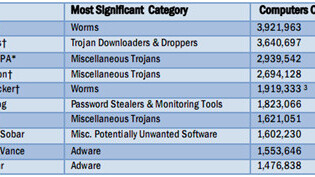
 Come this summer, US citizens can expect to see the first mobile handset capable of connecting to Sprint Nextel’s 4G network.
Come this summer, US citizens can expect to see the first mobile handset capable of connecting to Sprint Nextel’s 4G network.
If you read technology websites, the sheer mention of “4G” probably has you wondering if Apple are moving to announce an update to their iPhone range. In reality, the fourth generation (4G) mobile infrastructure is a super-fast wireless broadband network that allows USB modems, PC cards and selected mobile hotspots to connect supported gadgets to a nation’s mobile network.
In 2008, Sprint Nextel launched America’s first fourth generation wireless network (WiMax 4G), which is now incorporates 30 million people across 27 US markets. Sprint had built a super-fast network, incorporating large parts of America but had no mobile devices capable of connecting to it.
Things seem to have changed after Sprint told Forbes.com they are planning to release their first 4G handset in the first half of 2010, many months before industry predictions. Early reports suggest the first 4G phone will be an Android powered HTC device that will be able to fall back on Sprint’s 3G network where 4G isn’t available. Sprint’s intention is to widen their 4G network to incorporate more cities including Boston, New York, San Francisco and Washington, increasing their network to integrate another 90 million potential customers.
The move comes at a good time for Sprint, especially as Verizon are readying their own 4G network which operates using a different technology called LTE. The company views the 4G market as a massive revenue opportunity, focusing on providing an infrastructure for healthcare, manufacturing and other industries to use to wireless keep in contact with employees and clients. As 4G technology can reach speeds up to 10 times faster than 3G, it will allow Sprint’s customers to fully utilise data hungry applications and send high definition business and personal content across the it’s network.
The mobile industry is a very cat and mouse game, one company will push the limits of what was previously available and then the rest will follow. Expect to see other mobile carriers rushing to provide their own 4G networks and manufacturers working to release higher specification devices, possibly making 2010 a boom year for US mobile technology.
Get the TNW newsletter
Get the most important tech news in your inbox each week.





